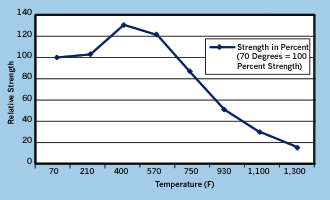On The Continuing, Pervasive Hatred of Short-Sellers
Readers will know that I have somehow been sucked into the Tesla vortex and spend too much time watching Tesla and Elon Musk's antics. I tried to explain some of the reasons for this fascination here. Every time I swear off following Musk, he does some new nutty thing, like his joke of a demonstration the other night of his Boring Company tunnel in LA (as usual, Musk has come up with another idea that would look cool on the cover of a 1970's Popular Mechanics or Boys Life magazine but fails almost every engineering, physics, and business logic test).
Anyway, I am going to mostly resist writing about Tesla and discuss the strange bias many Americans (really, many Westerners) have against short-selling. Here is a tweet from a random Tesla supporter that demonstrates what I see every day from Tesla fans:
In TSLA's case, SEC's purpose was the protect shortsellers - which aren't investors.
Bashing the SEC isn't illegal, they have no criminal authority.
— ThemeTeam (@ThemeTeamWP) December 21, 2018
lol no, shorts are not investors. They spread false information for profit and when proven wrong, they move to something else to stay relevant.
— ThemeTeam (@ThemeTeamWP) December 21, 2018
This notion that short sellers are not doing anything legitimate, that they do not deserve legal protections (or else should be banned entirely), and that they prosper only by spreading false information are not just a staple of hard core Musk fanbois, but are actually quite common attitudes. I saw it just the other night watching the movie The Accountant again (a family favorite in part because a streak of OCD and Asperger's runs through my family). In this scene, the guy talking is called Brax and he is a gangster and a mercenary, but for a variety of reasons the film-makers need to make him more sympathetic than the average thug. Watch the justification he gives:
The movie-makers are expecting that the average viewer will discount his thuggery here because he is beating up a short-seller, and we all know those guys are unethical and destructive (by the way, I too would be tempted to short a company that has stuffed its workers' pension fund with its own stock, that is a big red flag to me).
Short selling, in which one is betting the value of an asset will go down in the future, is a perfectly legitimate and valuable way to participate in markets. For those who are unsure what short selling is, here is how it works. People who own large blocks of a stock, let's say Exxon-Mobil or XOM, can lend their stock, for a fee, to other people. They do this as a way to generate extra income for their portfolio, particularly if they intend to hold the stock for the long term. The people who borrow the stock then immediately sell it. I know, this seems weird -- your neighbor who lent you his mower might be ticked off if you immediately sold it. But folks who lend their shares know you are going to sell it.
So I borrow and sell 100 XOM shares for, say, $90. If the price drops to $70, I can buy the stock back at that price and I make a $2,000 profit. The risk, though, is that if the price keeps going up, I am going to have to buy back at a higher price and lose money. If the price goes up too much, the broker is going to issue a margin call and likely force me to pony up more cash or buy back at the unfavorable price to cover my position. If I had to sell at $110, I would lose $2000.
Note that short selling has a more dangerous risk profile than going long, or buying the stock. If you buy 100 shares of XOM at $90, the most you can lose is $9,000 -- your losses are capped. On the other hand your upside is unlimited -- if XOM goes up to $500, you make a fortune. For short-selling, this is reversed. The short-seller's gain is limited -- the most they can ever gain is $9,000 if the stock goes to zero. But their losses are uncapped -- if XOM goes up to $500, they will have lost over $40,000. And even if the stock shoots up to $500 and eventually falls to zero (as do many bubble companies that get shorted), it may be hard to ride the short position to the end, either due to margin calls or failure of intestinal fortitude.
Short selling makes a ton of economic sense in part because it HAS to improve markets. First, it increases the liquidity of the market and the number and diversity of participants. The more subtle reason is because markets and pricing are information discovery tools. Short selling allows more people with information about a security to participate in this information exchange, which almost by definition improves the market. As Don Boudreaux wrote years ago:
To ban short-selling of stocks is to short-circuit an important mechanism through which people share their knowledge and expectations with others. Banning a mechanism that better allows share prices to reflect the expectation that the underlying assets are not worth as much as current market prices suggest does nothing to change the underlying reality. Such a ban merely distorts knowledge of this reality
I like to think about economics and business issues but I am not an economist. My layman's way of thinking about short selling was outlined in a post 10 years ago, written in reaction to a temporary ban in short selling during the market turmoil of 2008.
Someone noticed that just before certain stocks crash in value, there is a lot of short-selling. So the US government has banned short-selling, at least temporarily. Classic cargo-cult logic.
Boy this sure makes perfect sense in a time when we are concerned about speculative bubbles -- let's ban one of the most important tools that exist for bubbles to be shortened and made less, uh, bubbly. Here is why (very briefly and non-technically) short-selling takes the edge off speculative excesses.
At the start of the bubble, a particular asset (be it an equity or a commodity like oil) is owned by a mix of people who have different expectations about future price movements. For whatever reasons, in a bubble, a subset of the market develops rapidly rising expectations about the value of the asset. They start buying the asset, and the price starts rising. As the price rises, and these bulls buy in, folks who owned the asset previously and are less bullish about the future will sell to the new buyers. The very fact of the rising price of the asset from this buying reinforces the bulls' feeling that the sky is the limit for prices, and bulls buy in even more.
Let's fast forward to a point where the price has risen to some stratospheric levels vs. the previous pricing as well as historical norms or ratios. The ownership base for the asset is now disproportionately made up of those sky-is-the-limit bulls, while everyone who thought these guys were overly optimistic and a bit wonky have sold out. 99.9% of the world now thinks the asset is grossly overvalued. But how does it come to earth? After all, the only way the price can drop is if some owners sell, and all the owners are super-bulls who are unlikely to do so. As a result, the bubble might continue and grow long after most of the world has seen the insanity of it.
Thus, we have short-selling. Short-selling allows the other 99.9% who are not owners to sell part of the asset anyway, casting their financial vote for the value of the company. Short-selling shortens bubbles, hastens the reckoning, and in the process generally reduces the wreckage on the back end.
If you want to understand the volatility of a stock like Tesla ($tsla), the issue often is not short-selling but the extremely tiny float -- only a very small percentage of the equity in the company actively trades, while the rest sit in hands of folks who are not going to trade or even lend the stock (e.g. Elon Musk). With such a tiny float, small changes in sentiment lead to huge price swings, making it a hair-raising investment for both longs and shorts. This situation would likely be worse without the shorts.
As for the supposed false information spread by shorts, I am sure that happens. But information gathering by shorts is one of the reasons we should treasure short-selling. Here is my analogy -- one of the few good things about having Donald Trump as President is that the media actually is doing its job and is skeptical of everything he says and does. It digs into the truth of his every single statement. And sometimes what the media comes up with is fake or wrong. But I would still argue we are better off with this sort of accountability than we were with the media as lapdogs to Obama. Just look at the problems and potential rights violations at the border. The media ignored most all of this same activity when it was happening under Obama, but is rightly (finally) highlighting it under Trump.
Trump supporters hate the media, and argue that it was "long" Obama and "short" Trump, but whatever the reason, we are learning things we did not know before and knowledge has value. Shorts play this same role in the market. For years everyone fawned over Elon Musk and Tesla. The dedicated EV magazines were basically house organs of Tesla, a sort of Tesla Pravda. The longs did not want to see or hear any criticism. Essentially, no one wanted to be skeptical of the Tesla story except the shorts. The shorts may turn out to be wrong, but they are finding holes in the Tesla love story and that is valuable.
Postscript: If you do not invest and want a tiny taste of the hate short-sellers engender, go find the hottest, rowdiest craps table in a Vegas casino and start betting the Don't Come line.

